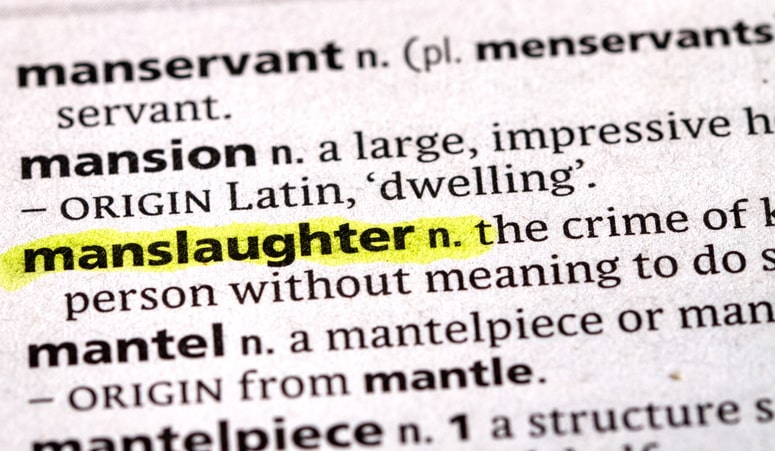Manslaughter, although a lesser crime than murder, is still considered a serious offense that involves the unlawful killing of another person. In California, there are two categories of manslaughter; involuntary manslaughter and voluntary manslaughter. While they both involve loss of life, they differ in various ways, as discussed in this article. Read on to find out the distinct differences between the two categories and how a Los Angeles criminal defense lawyer can assist in developing a robust defense strategy for your unique case.
Voluntary Manslaughter
In California, voluntary manslaughter is defined as the unlawful killing of another person without malice aforethought. Voluntary manslaughter occurs when one acts in the heat of passion or sudden anger, resulting from adequate provocation. The perpetrator does not have reasonable time to cool off before committing the act. If they did, then that would be classified as murder.
Elements of Proof in Voluntary Manslaughter
For one to be convicted of voluntary manslaughter in California, the prosecution must establish two key elements:
- Sudden and intense passion. The defendant must prove that they acted in response to adequate provocation, which led to an immediate emotional response.
- Absence of cooling-off period. The defendant must also prove they did not have a reasonable opportunity to calm down or regain self-control before killing the victim.
One must show that a reasonable person, in their situation, would also have reacted poorly out of passion instead of judging the situation.
Voluntary manslaughter may occur in many instances. For example, if a person finds their spouse in bed with someone else and, overcome by rage, grabs a nearby weapon and causes their spouse’s or paramour’s death. Similarly, if one is involved in a bar fight and they are physically assaulted and, in the heat of the moment, retaliates with excessive force causing the death of the other person, they may be charged with voluntary manslaughter.
Classification and Punishment
Voluntary manslaughter is considered a felony in California. As per California Penal Code 193(a), the sentence can be three, six, or 11 years in state prison if convicted. Additionally, you may be required to pay fines or have a strike under California’s three-strikes law.
Involuntary Manslaughter
Involuntary manslaughter, on the other hand, occurs when an individual unintentionally causes the death of another person without malice aforethought. The keyword here is without intent, meaning the defendant did not intend to kill. The victim’s death often results from the defendant’s reckless or negligent behavior.
Elements of Proof
To establish involuntary manslaughter, a prosecutor must prove that:
- The defendant was engaged in an unlawful act or performed a lawful act recklessly or negligently.
- The defendant knew his actions could endanger lives
- The defendant acted with a reckless disregard for human life or failed to exercise reasonable care, leading to the death of another person.
For example, if a thief enters a store intending to steal, but due to the shock of the situation, the store owner suffers a heart attack and passes away, the thief may face charges of involuntary manslaughter. The same case may apply if a negligent contractor fails to adhere to safety regulations leading to a fatal accident of a worker on site.
Criminal negligence is more than mere carelessness or errors in judgment. It involves an individual acting recklessly and knowingly, creating a substantial risk of death or serious bodily harm that a reasonable person would have recognized.
Classification and Punishment
Involuntary manslaughter is considered a felony in California. According to California Penal Code 192(b), if convicted, the sentence can range from two to four years in jail, a fine of up to $10,000, or formal probation.
Legal Duty in Involuntary Manslaughter
In involuntary manslaughter, you can also be held accountable if someone else dies due to failure to fulfill a legal duty. To establish guilt, a prosecutor must demonstrate that
- There exists a relationship between you and the victim, giving rise to a legal duty
- You failed to fulfill that duty
- The failure was criminally negligent and directly led to the victim’s death.
- Legal duty may include:
- The duty of a parent to a child
- The responsibility of a paid caretaker to those under their care
- The assumption of responsibility for another individual’s well-being
Defense Strategies for Manslaughter
Possible defense strategies for manslaughter may include:
- Imperfect self-defense
- Lack of intent or knowledge
- Accident
- Insufficient evidence
- Wrongful arrest or false accusation
Contact Our Criminal Defense Attorneys in Los Angeles, CA Today
If you or someone you know is facing voluntary or involuntary manslaughter charges in California, contact the skilled Los Angeles criminal defense attorneys at the Kosnett Law Firm by calling (310) 445-5900 today. We can analyze the details of your case, build a strong defense strategy, and advocate on your behalf in court.







